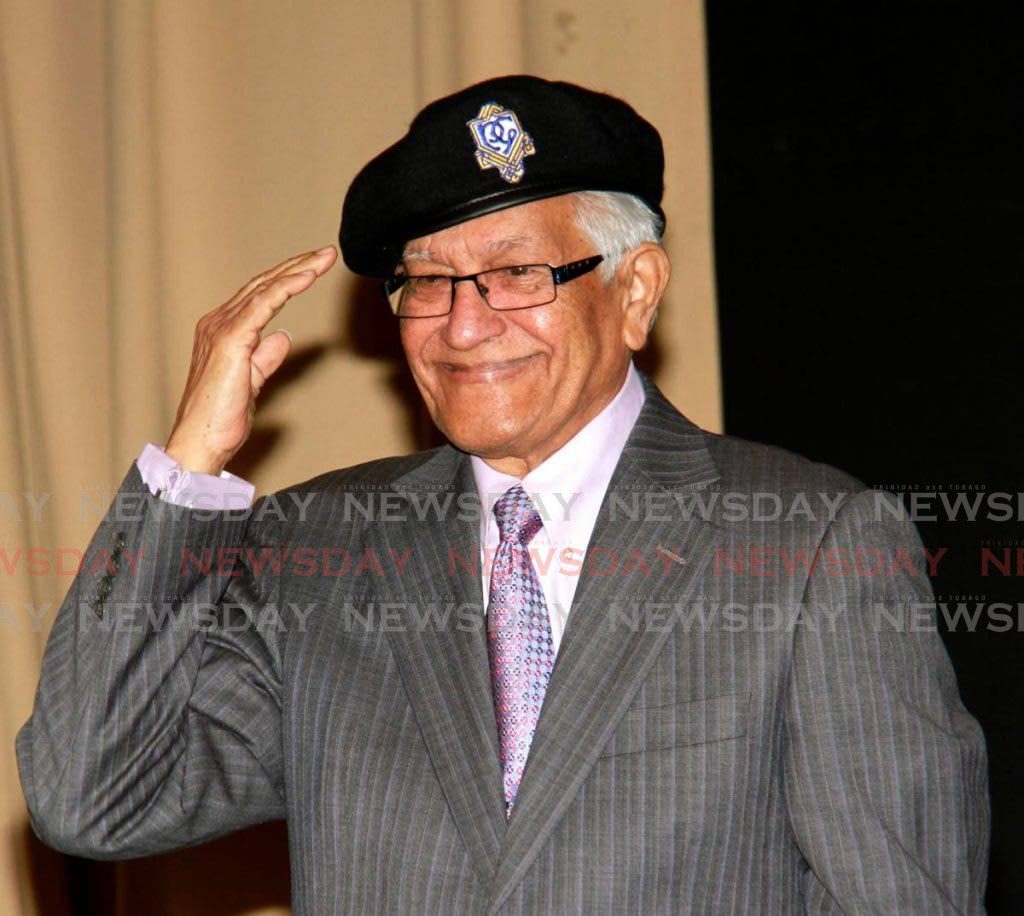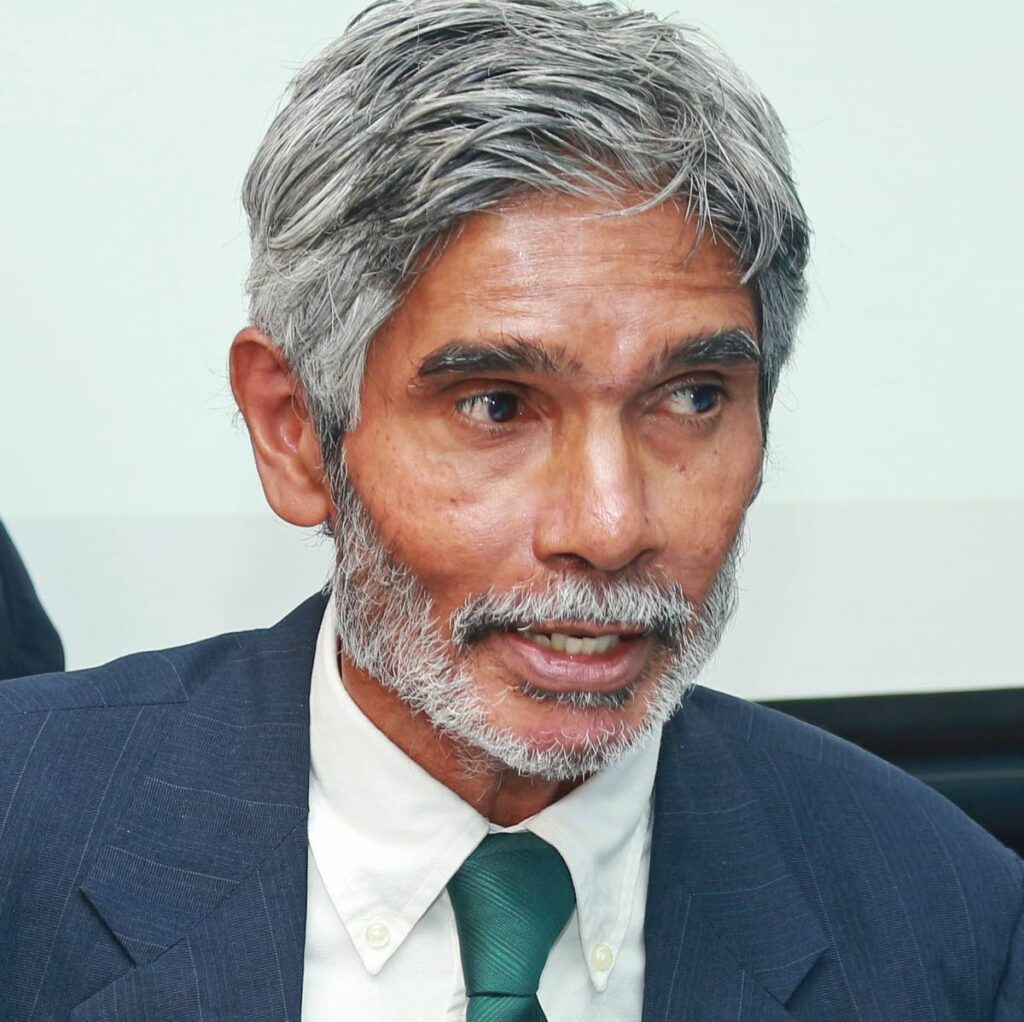The beauty of Basdeo

WAYNE KUBLALSINGH
HISTORY IS nothing if not ironic. Things turn out the opposite of what the logical mind expects. In history, opposites occur. And paradoxes too. A paradoxical circumstance is one which appears illogical, nonsensical, but on closer examination makes sense. A paradoxical outcome might appear crazy, perverse, undesirable for one and all; however, it makes sense.
Our race-based system of party politics has always been savagely critiqued. If the PNM puts a crapaud in Laventille, they say, they go vote for it. And similarly, is
apaan jat in the UNC; is Indian, no matter what! I have called our race-based politics a disease. An evil stalking the heart of our land. It is fundamentally tribal, undemocratic, based on our most primitive instincts. We kind, we own, no matter what. And devil takes the minority ethnic groups, the third, or smaller parties.
But perhaps I am wrong. Perhaps the genius of the people, the
volk geist (volks – people; geist – genius/spirit) has collectively decided otherwise. The collective unconscious of our folk has ruled: you take a hand, and I take a hand, not togetherly, but consecutively, you go, then I go. One race-based party in power, then the next, taking turns. A kind of revolving-door pluralism at this point in our constitutional history.
And if you muck up very badly, then you will sit two turns out, or even three. And, as if to prove the point, coalitions have always ended badly. First, the Robinson-Panday NAR (1986); second, the UNC-NAR (1995), which Robinson himself dissolved in 2001; and, third, the UNC/COP et al in 2010, which made such a traumatic mark, that it is sitting two terms out, and may have to sit out a third.
And if the PNM is to be defeated at all, it must be done, implies this theory, not by the well-meaning cosmopolitan party, but by another East Indian, that is race-based, party. In other words, implies this proposition, the UNC is ripe for crushing, by a new East Indian-based opposition party, to challenge and beat the PNM.
Basdeo Panday ended an era in TT politics. He, above anyone else, by his own sacrifices and indomitability, ended the era of the one-horse PNM party race. He achieved this in four Panday-esque steps. First, his feisty emergence in the trade union movement; second, his parliamentary and political battles with the PNM; third, his alliance with the NAR and ANR Robinson; and, fourth, his ascension to the prime ministership in 1995. He established the legitimacy of the East Indian in political authority. No one may any longer claim that an East Indian majority cabinet looks perversely Pakistani.

I first met Panday when I was a boy, just out of college. I had gone to Parliament, the Red House, to see what it was all about. I entered the washroom and there was he, Panday, zipping up, walking out. Caught unawares, he joked. Warmly, generously, disarmingly, “Eh eh, like meh zip stick, boy.”
Earlier in the Parliament, I had witnessed Dr Eric Williams, who had come in early for the session, and was sitting by himself. I saw an elderly bag-lady wander down the parliamentary aisle, rest a pamphlet on the desk before the Doctor. He snapped up the pamphlet, glared at it for a second, and without watching or acknowledging the lady, slapped it on the desk and continued with his reading.
The opposition party was ten. Out of 36. And boy, how the PNM members made fun of them! They were mocked, jibed, made sport of. Their earnest and adamant contributions were cast aside unceremoniously. The PNM held the overwhelming majority, and poor Panday and his ULF colleagues appeared to be spinning top in mud, poor-me-one, desolate and pathetic. No hope.
But in the washroom, I had witnessed Panday close up. His face. It was the face of the undefeated, indefatigable flag. He had been hustling to get back into the parliamentary broil. I could see, marked on this face, no fear. No timidity. No symptom of cowardice. But a warrior's delight, excitement, impatience, to get back into the gayelle and fight. The call to fight excited him, emboldened him, enervated every cell and sinew in his blood and bones!
And when I was small, nine, ten, I used to go with my nanny, my mother’s mother, Ivy, into the canefields. A few lots of cane, rented at peppercorn rate, by Stollmeyer to small farmers. I went for fun. To rake trash. Throw salt. Load the bull-cart. Run along with my nanny, through the rutted muddy tracks to the scale-house, to see the cane weighed. Eight dollars a ton.
And then suddenly, more dollars per ton. Twelve, 14, 80, 120, 240. What the monkey! What had happened? Something far beyond us. In TICFA house. On the trade union front. Basdeo Panday. So easy? We could have never foretold, imagined it. My nanny bought a TV from Ram Kirpalani, and a pink plastic screen to fall over its face, to give us what they called colour!
And living on a hill overlooking the large escarpments of billowy canefields, we had, for donkey years, no water. We had to tote from down the hill. Buckets. Or "borrow" water from the neighbour. Getting water was an unimaginable proposition. Could not imagine it. Whap! Up comes Panday in 1995. Whap! So easy. Water!


Comments
"The beauty of Basdeo"